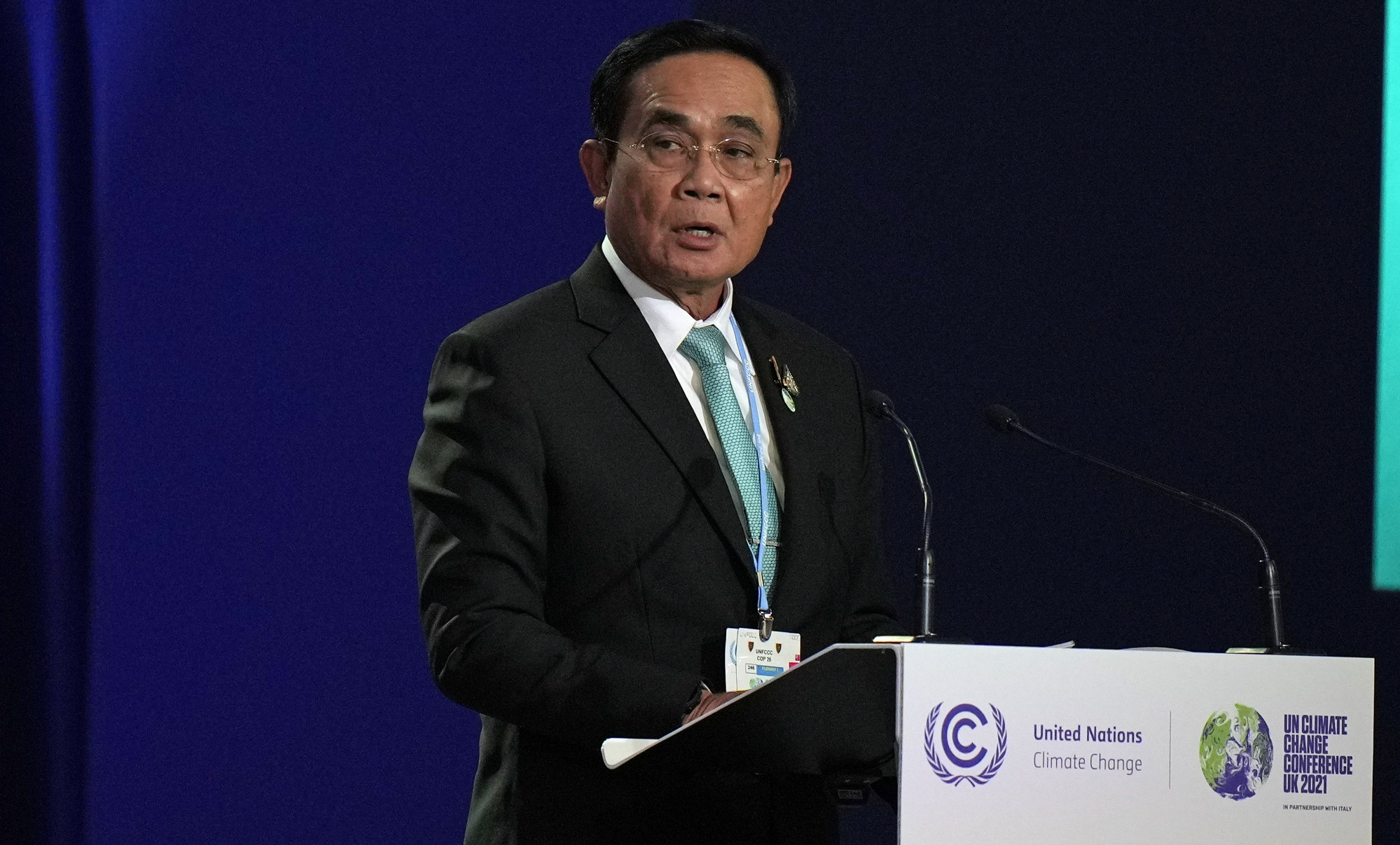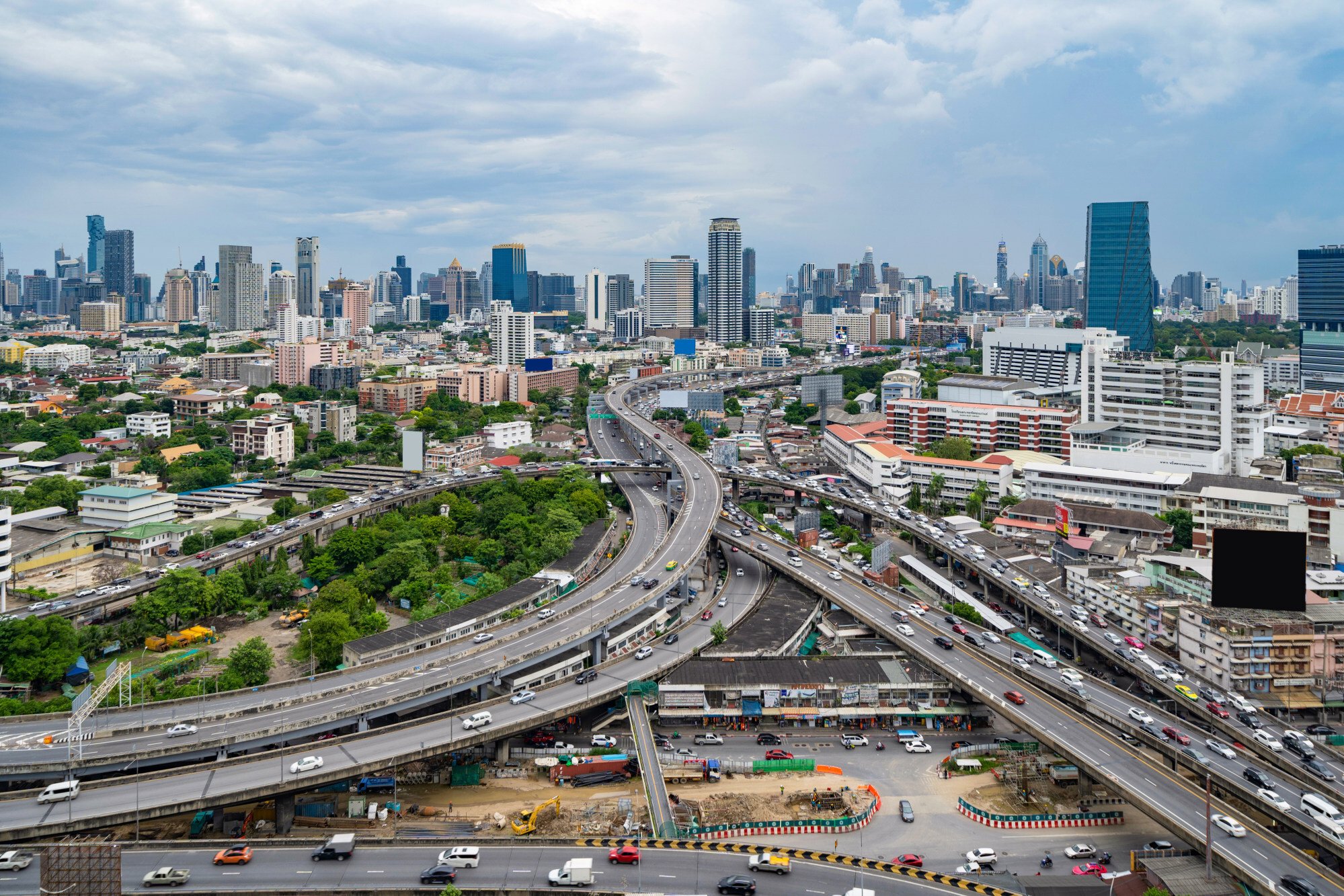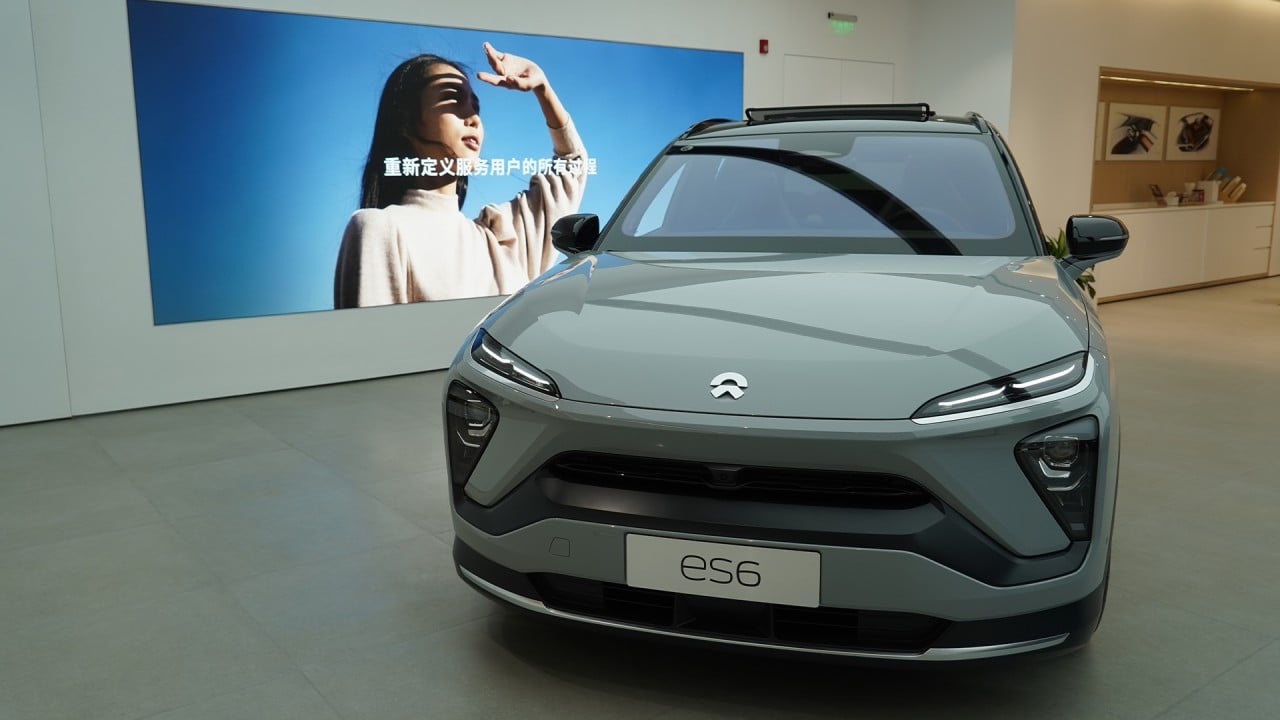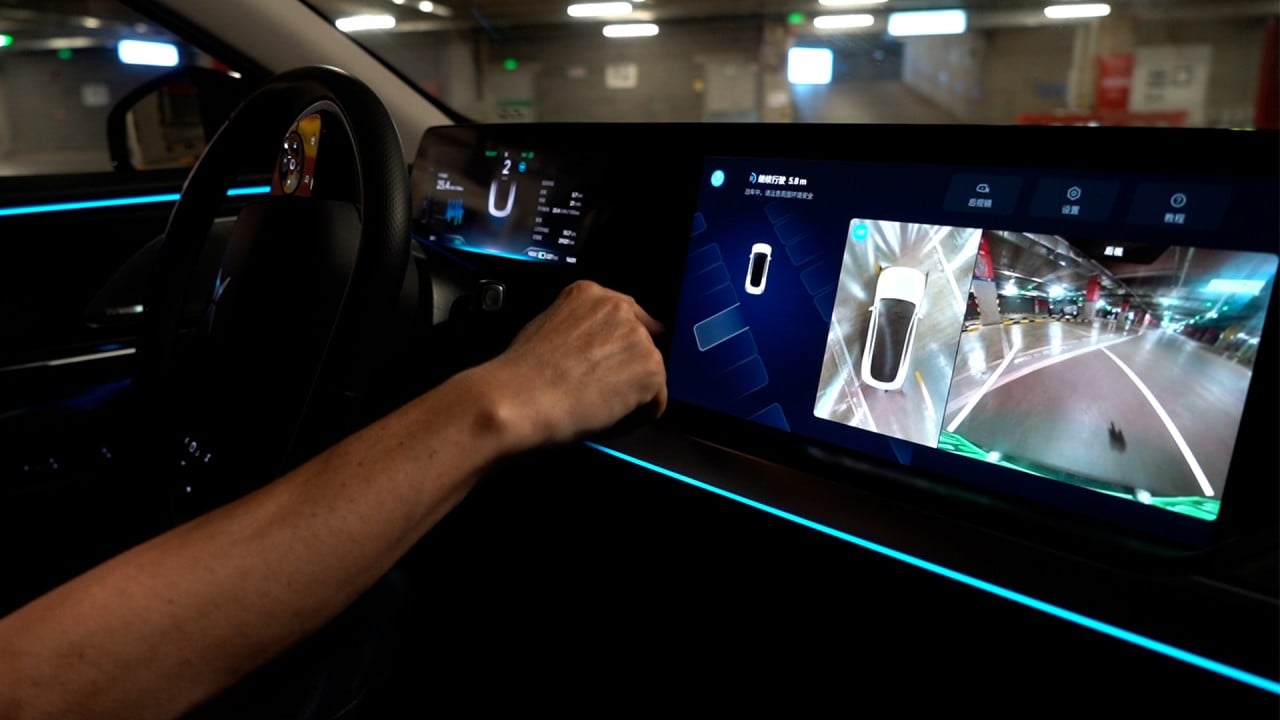
Why Chinese electric cars are causing a buzz in Thailand
- With its pretty looks, attractive price and reasonable range, the Ora Good Cat of Great Wall Motor is setting records by appealing to young consumers and women
- As Thailand embraces EVs, Chinese brands are stealing a march on more established Japanese rivals, but the country’s status as ‘Asia’s Detroit’ is under pressure from Indonesia
When Great Wall Motor – a Chinese carmaker that’s still a newcomer in the Thai market long dominated by Japanese brands – last month released the Haomao or Ora Good Cat, it received more than 4,200 pre-orders in less than 24 hours, a record for zero-emission cars in Thailand and a figure that eclipsed even the previous high for annual sales of battery-run EVs in the kingdom.
The Chinese battery maker at the forefront of revolutionising EVs
“Irrespective of technology, the Ora Good Cat looks so pretty and attracts lots of young consumers to want to try it,” Nithi said.
“The EV market in Thailand is also slowly changing. Men used to be the biggest EV consumers because they were willing to try it, but now there are more women. And the Good Cat is both functional and fashionable. The driving range and the prices are very reasonable.”
The rise of Chinese EVs
GWM’s plant in Thailand is the company’s second full-production manufacturing facility outside China and its base for expansion in Southeast Asia, as well as for exporting to other Southeast Asian countries, Australia and beyond.
Thailand’s policy is shifting to accommodate the transformation to EVs, with the government aiming for all newly registered vehicles to be electric by 2035.

In May, Thailand unveiled the 30@30 EV road map, under which EVs would make up 30 per cent of all vehicles manufactured by 2030.
This was an ambitious goal, said Krisda Utamote, president of the Electric Vehicle Association of Thailand.
Putting in place incentives for consumers and for local investors to develop charging stations and infrastructure would help achieve the target, he said. There are currently more than 2,000 charging stations across Thailand, but the government hopes that by 2030, that number could increase to 12,000.
The China-Asean Free Trade Agreement imposes zero taxation on imported Chinese vehicles.
There is a possibility that Japanese companies would lobby the Thai government to delay the growth of the EV industr
Vehicles imported from Europe face an 80 per cent tax while those from Japan attract a 20 per cent tax thanks to the Japan-Thailand Economic Partnership Agreement.
“The popularity of the Ora Good Cat in Thailand would be the starting point for Japanese car brands to seriously re-evaluate their expansion of electric car manufacturing or marketing in Thailand,” said automotive journalist Nithi.
“There is a possibility that Japanese companies would lobby the Thai government to delay the growth of the EV industry. Japan is such a long-time friend to Thailand and the abrupt shift to EVs would mean tens of thousands of local suppliers will be out of jobs,” he said.
India minister calls on Tesla to manufacture, sell its cars in the country
Japanese car brands lagged in EV technology compared to China, Nithi said. The Nissan Leaf cost twice as much as the Ora Good Cat, yet its range per charge was just over half as far.
The Fomm, a locally made Japanese EV, had not picked up sales in Thailand, said Nithi, due to price and range. The Japanese EV pickup truck Takano, also made in Thailand, also could go only 100km per charge.
“Chinese EVs are value for money. I’m not saying the Thai market is ready now to welcome the Chinese car products priced at 3 million baht which would place them in the same price range as BMW, for example,” he said, adding this could be why luxury Chinese EVs like the MG Marvel R or the BYD Han had not yet entered the Thai market because it took time for consumers to get to know Chinese car products.

The Federation of Thai Industries’ vice-chairman and spokesman for the group’s automotive club Surapong Paisitpatanapong said the popularity of Chinese EVs in Thailand started with the introduction of the MG ZS in Thailand in 2019, followed by two more models the following year.
“MG has done so well to create confidence among Thai consumers in such a short time,” he said, adding that price was a key factor despite the Chinese brands having no decades-old reputation like Japanese or European brands.
MG is a British car brand that was acquired by Chinese state-owned SAIC Motor in 2007. The company says it has a 90 per cent market share of EVs in Thailand and plans to launch three more EV models next year.
Japanese brands under pressure
Thailand’s domestic car sales in August fell at the sharpest rate in 15 months as lockdowns continued to threaten parts supplies and economic gloom meant people were more hesitant or less able to spend on new vehicles, according to the Federation of Thai Industries.
But EV ownership in Thailand doubled. In September 2020, more than 1,800 battery-run electric vehicles were registered in Thailand, but a year later, the registration figure rose to 3,600.
China’s electric car plan: looks good, but under the bonnet ...
While Nithi said Japanese brands would feel the pressure and lobby, James Guild, an adjunct fellow at S Rajaratnam School of International Studies, said there were “knock-on benefits” from international investors vying for incentives in Thailand.
“The Thai government wants any kind of investment in manufacturing that will increase exports. This is the fundamental logic of their entire economy – it’s built around exports,” he said.
“From the Thai perspective, it probably doesn’t matter if those companies are Chinese, Japanese, Korean or European. In fact, inducing competition between international rivals could have knock-on benefits, like a greater willingness of foreign partners to transfer critical battery or motor technology.”
Japan’s FDI application in Thailand was the largest in 2020, having lost the position to China in 2019. China’s FDI application slumped by 90 per cent last year due to Covid-19, according to the Board of Investment.

Guild said that Thailand’s state-owned energy conglomerate PTT’s recent deals with Foxconn and a Chinese start-up called Hozon to develop EVs was “the clearest indication that Thailand is serious about weaning itself off fossil fuels”.
“PTT operates, if I’m not mistaken, 40 per cent of Thailand’s gas stations so if they are ready to throw billions behind the development of a rival technology that will put their gas stations out of business, you know this isn’t just window dressing,” he said.
“That could help to make Thailand an even more attractive spot to set up EV manufacturing – not only is the investment and business climate conducive, but a legacy fossil fuel company like PTT becoming a credible partner of foreign EV makers would be a big sweetener.”
Can Thailand maintain ‘Detroit of Asia’ status?
The shrinking of Thailand’s car manufacturing, though short-term according to analysts, and its shift to EVs could mean that Indonesia could rise as the biggest car manufacturer in Southeast Asia, according to Guild.
Thailand has manufactured 2 million cars on average annually for at least the past decade, with about 50-60 per cent of these vehicles marked for export. However, that figure fell to 1.4 million in 2020 due to Covid-19 lockdowns, said Surapong from the Federation of Thai Industries. He said the recovery would take time, predicting that the country would manufacture 1.6 million cars this year.
“Since the Asian Financial Crisis, Indonesia’s auto manufacturing sector has been booming on the strength of its domestic demand, but also because the business environment has got a lot friendlier to foreign car companies [by loosening foreign ownership restrictions and supply chains]. Since that happened, we’ve seen Indonesia start to pose a real threat to Thailand’s position as the region’s top auto manufacturing hub,” Guild said.
Why Malaysia’s national car is driving into an election storm
Indonesia’s car production reached a high of 1.3 million in 2018, lagging Thailand by several hundred thousand units, according to Guild. As EV manufacturers started making inroads into both Indonesia and Thailand, the country had “something that Thailand doesn’t – the largest raw nickel deposits in the world”.
“Nickel is an essential input for making the lithium-ion batteries that power EVs. So far they have got commitments to invest in EVs and batteries from major Japanese, South Korean and Chinese companies.
“Will Indonesia’s control over raw nickel be enough to grab a larger share of investment in EV manufacturing than Thailand? Nobody knows. But it’s one of the key things to watch over the next few years,” he said.




